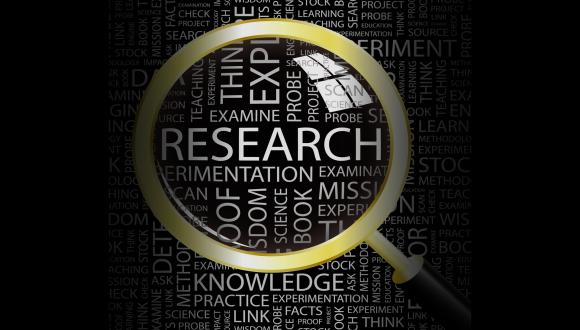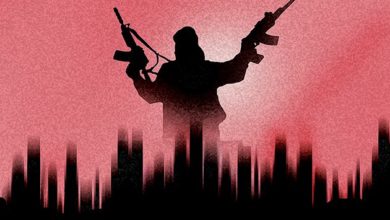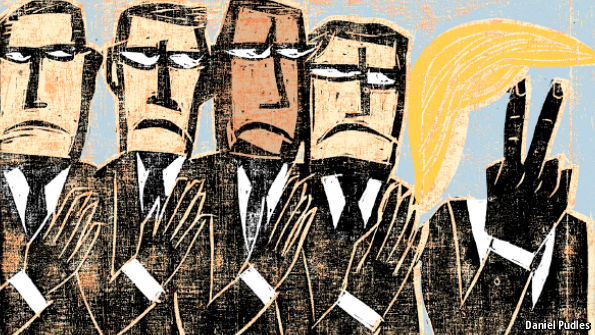إضاءة على الدراسات الكردية في الأوضاع الاقتصادية في المناطق الكردية
Illumination on Kurdish Studies (The economic situation in the Kurdish regions)

اعداد : هيئة تحرير المجلة
المركز الديمقراطي العربي : –
-
المجلة الدولية للدراسات الكردية : العدد الثاني تموز – يوليو 2023 مجلد 1، دورية علمية دولية محكمة تصدر عن #المركز_الديمقراطي_العربي برلين – ألمانيا تعنى بنشر الدراسات والبحوث في الشؤون الكردية ضمن المجالات السياسية والاقتصادية والاجتماعية والثقافية كما تهتم بنشر الأوراق البحثية والتقارير الصحفية والتحليلات السياسية والإعلامية ذات الصلة داخليا واقليميا ودوليا.
- Govara Navdewletî ji bo xwendinên Kurdî – Govara Navdewletî ji bo xwendinên Kurdî- govareke zanistî, navnetewî(cîhanî) hhekemî ye.Ev Govar dê bi piştgirîya sintrê demokratî- Erebî li Berlîn- Almanîyayê bê belavkirin
للأطلاع على البحث “pdf” من خلال الرابط المرفق :-
ملخص :
في هذا العدد سنسلط الضوء على دراسات نُشرت في السنوات الأخيرة، والتي قَدمت تحليلاً لظواهر اقتصادية عدّة من مختلف المناطق الكردية، ولاسيما في تركيا والعراق وإيران وسوريا . معظمها يتركز على تأثيرات التحركات السياسية في الأوضاع الاقتصادية وفي تغيير طبيعة طبقاتها تبعاً لطبيعة الأنظمة السياسية الحاكمة. وكذلك في عرض ظواهر اقتصادية أفرزتها طبيعة تلك الأنظمة السائدة في بعض المناطق الكردية، وما يخلّفه من حالات عنف ومآسي على أكثر من صعيد، ليس على المستوى الاقتصادي فحسب، بل الاجتماعي والإنساني أيضاً.
قام الباحث فيلي ياديرجي في دراسته بتحليل الهياكل الاجتماعية والاقتصادية والسياسية وتحولات الشعب الكردي من العهد العثماني إلى الجمهورية التركية الحديثة . قام بفحص التطورات الاجتماعية والاقتصادية والسياسية والهياكل والتحولات في شرق وجنوب شرق الأناضول(من 1514 إلى 2014 ). ثم مقارنة هذه التحولات بشكل نقدي مع تلك التي حدثت في المجالات الأخرى في سياق المنطقة الجيوسياسية الأكبر التي كانت هذه الأراضي جزءاً من مسار هذه القرون الخمسة. نتيجة لذلك، يبتكر الفصل فترة زمنية جديدة للتاريخ الاجتماعي والاقتصادي في هذه المنطقة على أساس ثلاث فترات متميزة: التنمية والتخلف والتراجع عن التنمية.
عرض الباجث محمد رؤوف كسيجي دراسات عدة عن الوضع والنظام الاقتصادي الهش المطبق في تركيا، من مختلف الجوانب، ولاسيما ما يتعلق بظروف العمل وطبيعته، وعرض أفق الحلول وعراقيل تحقيقها. قدم الباحث كيسيجي تحليلاً لسوق العمل في تركيا وسياسات التوظيف في فترة العقد الأول من القرن الحادي والعشرين. رأى أن آفاق حل سوق العمل الحرج في تركيا تتكون من تحرير الاقتصاد والتجارة، وخفض تكاليف الإنتاج وحزم الإجراءات، التي تهيمن عليها اللوائح الليبرالية الجديدة لصالح أرباب العمل. علاوة على ذلك، يتم إهمال قلة الضمان الاجتماعي وساعات العمل الطويلة.
الباحثة زينب أوغوز تكشف من خلال دراستها صوراً أخرى من أشكال الاستعمار العسكري التركي في المناطق الكردية، من خلال إدارة ملف النفط في المنطقة، التي تظهر علاقات استبدادية قائمة على أساس منفعة الطرف الحاكم، وقمع الآخر غير الموالي(المعارض)، أي بحسب معايير ولاءهم للحزب الحاكم، وليس للدولة كما يدّعون.
قدم الباحث نيكول ديجلي اسبوستي تحليلاً في تغيير الطبقات الاجتماعية مع التغييرات الإيدولوجية والسياسية . فقدم دراسة معمقة للتحركات والديناميكيات التي شهدتها الطبقات الاجتماعية في موازاة مع التحركات والانعطافات السياسية، في مختلف المناطق الكردية، ولا سيما في كردستان العراق. وهذه الدراسة التحليلية الواسعة تبرز مسار الحراك السياسي وانعكاساته على الوضع الاقتصادي.
سعى الباحث جونجيردين في دراسته من خلال القطاع الزراعي في شمال شرق سوريا إلى تشخيص الأطوار الزراعية التي مرت بها منطقة روج أفا من العهد العثماني مروراً بسيطرة حكم البعث انتهاء بحكم الإدارة الذاتية التي يقودها الكورد، مدعّماً دراسته بمراجع وآراء وتصريحات عدة. يشير الباحث إلى أن النضال الاجتماعي والسياسي للسيطرة على الوسائل الثقافية والاقتصادية للوجود يحتاج إلى مزيد من البحث المتعمق. قد تستفيد مثل هذه الأبحاث أيضاً من منظور مقارن مع النضالات الاجتماعية والسياسية في أماكن أخرى من النضال الاجتماعي والسياسي لحركة العمال الريفيين المعدمين. يرى الباحث أنه في الوقت الذي حظي فيه قتال الحركة الكردية ضد تنظيم الدولة الإسلامية بتغطية كبيرة، لم يُعطَ أيّ اهتمام تقريباً لجهود إعادة الإعمار في روج آفا بعد تحريرها من نظام البعث وهزيمة الخلافة، ناهيك عن المبادئ السياسية الكامنة وراء إعادة بناء الاقتصاد الزراعي، التي ستكون محور تركيز هذه المقالة. تناقش هذه الورقة السياسة الزراعية في روج آفا من منظور الاستقلالية. يُظهر المقال كيف كان تنظيم الدولة السورية للإنتاج والأسواق أدواتاً لنزع التنمية ونزع الملكية، وتغيير الهندسة الديموغرافية، وفرض التجانس الثقافي. بالمقابل يرى في ظل حكم الإدارة الذاتية من خلال إعادة إنشاء سوق المنتجات الزراعية في كوباني رمزاً للطريقة التي عادت بها المدينة إلى الحياة. وإحلال التعددية الثقافية محل سياسة التعريب التي كانت مطبقة سابقاً، وغيرها من ظواهر انقلابية على الأنظمة السابقة.
يشير الباحث ماثيو وايتلي إلى أنّ ثمة تحوّل عميق يحدث في المجتمع المدني، وهو تحول يعمل على معالجة عقود من الظلم الاقتصادي في مناطق الأقليات (الكردية والآشورية والتركمان، إلخ) في الشمال والشرق من سوريا. لقد تعرض سكان هذه المنطقة تاريخياً لسياسات مستمرة من نزع الملكية والتخلف الاقتصادي. ويرى أنه في مواجهة اقتصاد الحرب والعقبات التاريخية الهائلة، من اللافت للنظر أن الإدارة الذاتية لشمال وشرق سوريا تمكنت من إنشاء واحد من أكثر الاقتصادات استقراراً واكتفاءً ذاتياً في البلاد. من خلال هياكل مثل اللجان النسائية والمجالس الاقتصادية، إنشاء طرق للائتمان الصغير والتدريب المهني، مما يسمح بإنشاء العديد من المشاريع الجديدة التي تتراوح من الزراعة وتربية الحيوانات، إلى إعادة التدوير، إلى منظمات تجار الجملة. وتم تشكيل الأكاديميات لسد الثغرات في الوصول إلى التعليم، والتدريب المهني، وغيرها من مشاريع متنوعة على مختلف الصعد، ضمن إمكانات محدودة وظروف صعبة.
يرى الباحث مايكل كليفنغر أنه لا يمكن فهم التناقضات والديناميكيات في شمال وشرق سوريا بدون تحليل اقتصادها السياسي وبيئتها، والبنية التحتية للسيادة. لفهم الاقتصاد السياسي والإيكولوجي في شمال شرق سوريا NES ، ينبغي إدراك مدى تداخلها والتكامل المتأخر (الموجه للتصدير) في الاقتصاد العالمي. مع الأخذ بعين الاعتبار الشبكات الطائفية المتشابكة للعرق والدين والعشائرية والطبقية. يستعرض الأوضاع الاقتصادية المأساوية في هذه المنطقة في ظل حكم الأسد، على مختلف الصعد الزراعية والصناعية والتجارية، وما تؤول إليه الأوضاع الاقتصادية في ظل الإدارة الذاتية، والصعوبات التي تواجهها في سعيها نحو تحقيق الاكتفاء الذاتي. ويرى أنها هي جزء لا يتجزأ من عالم السيادة غير المتكافئة، فهي منطقة محاصرة جغرافياً ومصطنعة ومندمجة في الخصائص الطبوغرافية والبنية التحتية – بما يسمي بـ “آليات السيادة” – التي تؤثر على قراراتهم، وتحد من قدرتهم على المناورة، وتعارض مطالبهم بالسيادة.
يعدّ عمل فريده كوحي كمالي من الدراسات المتميزة باللغة الإنكليزية. موضوعها عن الاقتصاد السياسي للعشائر الكردية. يرى الباحث أنه قد حدثت تغيرات كبيرة في الحياة الاجتماعية والاقتصادية للكردستان الإيرانية في بداية القرن. ربما كانت هذه حتمية بسبب التغيرات الديموغرافية وغيرها من التغييرات الناشئة داخل المجتمع الكردي. ومع ذلك، ساهمت السياسات الحكومية التي دمرت أسلوب الحياة البدوية / القبلية في سرعة التغيير. أدت هذه التغييرات إلى توطين القبائل الكردية. يربط المؤلف خصائص الحركة في مراحلها المختلفة بالبنية الاجتماعية-الاقتصادية للمجتمع الكردي وتغيره من القبائل (والرعاة الرحل إلى حد كبير) إلى المجتمع الفلاحي والمدني.
ثمة دراسة أخرى قدمها مجموعة من الباحثين (سنان مرادي، آدم سي مورس، الكسندر مورفي ) تبحث في الحياة المحفوفة بالمخاطر للكولبير الكوردي، وهم عمال ينقلون البضائع على ظهورهم عبر حدود إيران مع العراق. خلال رحلاتهم الشاقة، يتعرض كولبير لأشكال مختلفة من العنف، بما في ذلك إطلاق النار المباشر من قبل حرس الحدود. هو نوع عمل شاق وخطير ومحفوف بالمخاطر، على الرغم من تأكيد كولبير على الفاعلية داخل عملهم على المستويات المحلية، فإن التنظيم الاجتماعي لكولبير هو ردّ على تفشي البطالة في كردستان الإيرانية، ونتيجة طويلة الأمد لسحب الاستثمار الاقتصادي الممنهج والعنف للدولة الإيرانية في المنطقة الكردية.
Abstract
In this issue, we will shed light on studies published in recent years, which provided an analysis of several economic phenomena from various Kurdish regions, especially in Turkey, Iraq, Iran and Syria. Most of them focus on the effects of political movements on economic conditions and on changing the nature of their classes according to the nature of the ruling political regimes. As well as in the presentation of economic phenomena produced by the nature of those prevailing regimes in some Kurdish regions, the violence and tragedies it causes on several levels, not only on the economic level, but also on the social and human level.
In this study, the researcher Veli Yadirgi analyzes the social, economic and political structures and transformations of the Kurdish people from the Ottoman era to the modern Turkish Republic. It examines social, economic, and political developments, structures, and transformations in eastern and southeastern Anatolia (from 1514 to 2014). These transformations are then critically compared to those that occurred in other areas within the context of the larger geopolitical area in which these lands were part of the course of those five centuries. As a result, the chapter creates a new time period for the social and economic history of this region on the basis of three distinct periods: development, underdevelopment, and de-development.
The academic researcher, Mehmet Rauf Kesici presented several studies on the situation and the fragile economic system applied in Turkey, from various aspects, especially with regard to working conditions and nature, and presented the horizon of solutions and the obstacles to achieving them. Researcher Kesici presented an analysis of the labor market in Turkey and employment policies in the first decade of the twenty-first century. He saw that the prospects for resolving the critical labor market in Turkey consisted of liberalization of the economy and trade, reduction of production costs and packages of measures which are dominated by neo-liberal regulations in favor of employers. Moreover, the lack of social security and long working hours are neglected.
The researcher Zeynep Oguz reveals, through her study, other forms of Turkish military colonialism in the Kurdish regions, through the management of the oil file in the region, through authoritarian relations based on the benefit of the ruling party, and the suppression of the other who is not loyal (opposition), that is, according to the criteria of their loyalty to the party The ruler, not the state as they claim.
Researcher Nicola Degli Esposti presents an analysis of changing social classes with ideological and political changes. It is an in-depth study of the movements and dynamics witnessed by the social classes, in parallel with the political movements and turns, in the various Kurdish regions, particularly in Iraqi Kurdistan. This broad analytical study highlights the course of the political movement and its repercussions on the economic situation.
In this study, the researcher Jungerdin seeks, through the agricultural sector in northeastern Syria, to diagnose the agricultural phases that the Rojava region went through from the Ottoman era, passing through the control of the Ba’ath rule, ending with the Kurdish-led Autonomous Administration, supporting his study with several references, opinions, and statements. The researcher points out that the social and political struggle to control the cultural and economic means of existence needs more in-depth research. Such research might also benefit from a comparative perspective with the social and political struggles elsewhere in the social and political struggle of the landless rural workers’ movement. The researcher believes that while the Kurdish movement’s fight against the Islamic State has received great coverage, almost no attention has been given to the reconstruction efforts in Rojava after its liberation from the Baath regime and the defeat of the caliphate, not to mention the political principles behind the rebuilding of the agricultural economy, which would be The focus of this article. This paper discusses agricultural policy in Rojava from the perspective of autonomy. The article shows how the Syrian state’s regulation of production and markets has been a tool for de-development and expropriation, changing the demographic engineering, and imposing cultural homogeneity. On the other hand, he sees, under the rule of the Autonomous Administration, through the re-establishment of the agricultural products market in Kobani, a symbol of the way the city has returned to life. The replacement of cultural pluralism with the policy of Arabization that was applied previously, and other coup phenomena against previous regimes.
Researcher Matthew Whiteley points out that a profound shift is taking place in civil society, a shift that works to address decades of economic injustice in minority areas (Kurdish, Assyrian, Turkmen, etc.) in the north and east of Syria. The population of northern and eastern Syria has historically been subjected to continuous policies of expropriation and economic backwardness. He believes that in the face of the war economy and the enormous historical obstacles, it is remarkable that the Autonomous Administration of North and East Syria has been able to establish one of the most stable and self-sufficient economies in the country. Through structures such as women’s committees and economic councils, the creation of micro-credit and vocational training routes, allowing for the creation of many new enterprises ranging from agriculture and animal husbandry, to recycling, to wholesalers’ organisations. The academies were formed to fill the gaps in access to education, vocational training, and other projects at various levels, with limited abilities and difficult circumstances.
Researcher Michael Clevenger believes that it is not possible to understand the contradictions and dynamics in northern and eastern Syria without analyzing its political economy, environment, and sovereignty infrastructure. To understand the political and ecological economy of Northeast Syria NES, one should recognize their overlap and late (export-oriented) integration into the global economy. Taking into account the interwoven sectarian networks of race, religion, clan and class. It reviews the tragic economic conditions in this region under Assad’s rule, at the various agricultural, industrial and commercial levels, and what the economic conditions lead to under the Autonomous Administration, and the difficulties it faces in its pursuit of self-sufficiency. He believes that it is an integral part of the world of unequal sovereignty, as it is a geographically confined and artificial area that is integrated in topographical characteristics and infrastructure – with the so-called “mechanisms of sovereignty” – that affect their decisions, limit their ability to maneuver, and oppose their demands for sovereignty.
Farideh Koohi- Kamali’s work is considered an outstanding study in English. Its topic is about the political economy of the Kurdish clans. The researcher believes that great changes have taken place in the social and economic life of Iranian Kurdistan at the beginning of the century. Perhaps these were inevitable due to demographic and other changes emerging within the Kurdish community. However, government policies that destroyed the nomadic/tribal way of life contributed to the speed of change. These changes led to the settlement of the Kurdish tribes. The author relates the characteristics of the movement in its various stages to the socio-economic structure of Kurdish society and its change from tribes (and largely nomadic pastoralists) to peasant and civil society.
A study presented by a group of researchers (Sanan Moradi, Adam C. Morse, Alexander Murphy, Shehabad H.) This paper examines the precarious life of the Kurdish kolberi, who are workers transporting goods on their backs across Iran’s border with Iraq. During their arduous journeys, kolberi is subjected to various forms of violence, including direct shooting by border guards. It is a arduous, dangerous, and risky kind of work. Despite kolberi’s emphasis on agency within their work at local levels, kolberi’s social organization is a response to rampant unemployment in Iranian Kurdistan, and a long-term consequence of the Iranian state’s systematic and violent economic disinvestment in the Kurdish region.




